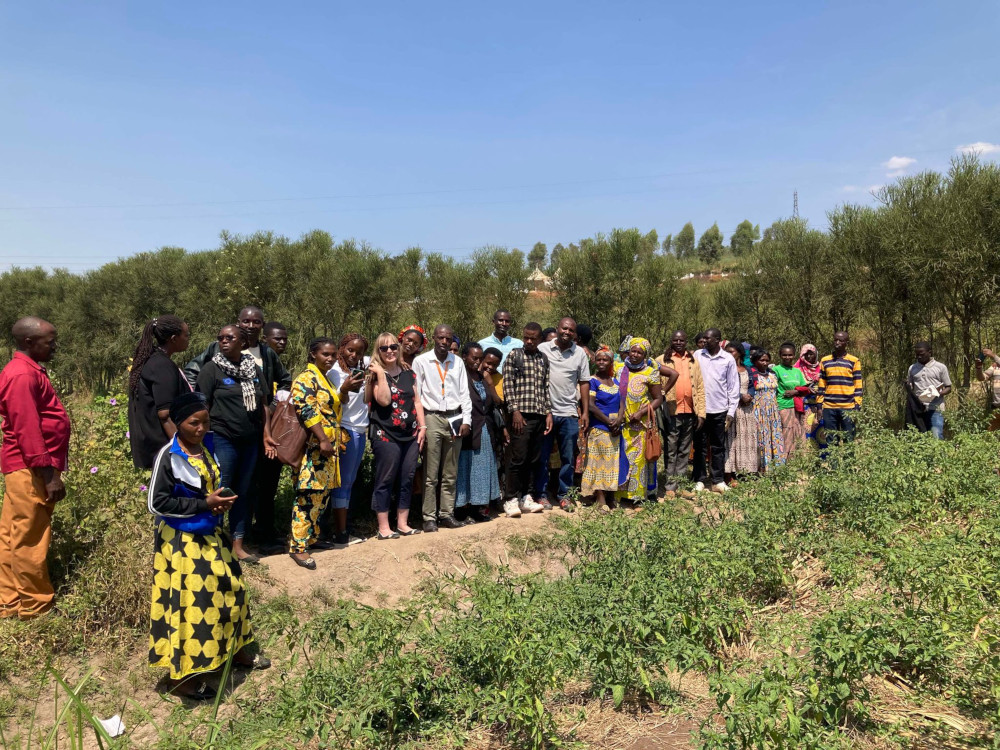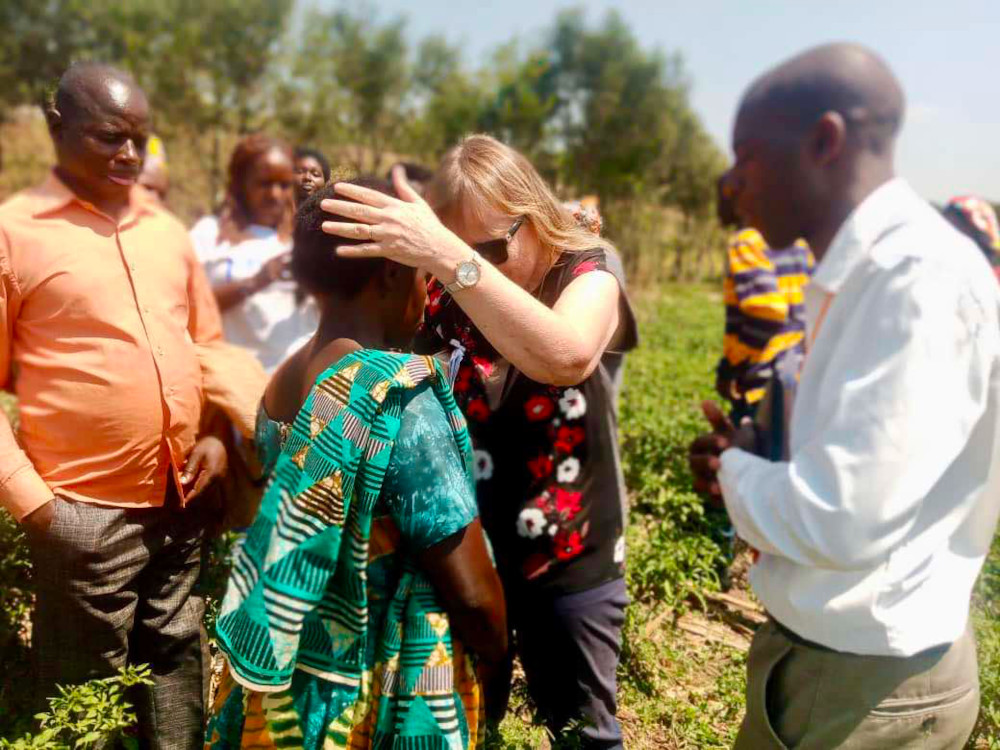When Glynis Quinlan went on a mission trip to Rwanda with African Enterprise, she found that a very familiar Australian-made evangelistic campaign had taken off in the East African country.
In 2023, 16,141 people were saved through the Jesus All About Life campaign in Rwanda, which was funded by Bible Society Australia and run by African Enterprise. In 2024, 16,178 were saved. In each year, about half are saved through mass media campaigning and half through church-based campaigning, through about 40 churches each time. The Jesus All About Life media campaigns reached nearly 4 million people in 2023.
African Enterprise is a pan-African evangelistic enterprise that uses word and deed to reach the cities of Africa.
These amazing statistics were provided to The Other Cheek through George Nkurunziza. who heads up missions and evangelism for AE Rwanda. AE Rwanda is especially funded by christian donations from Australia. Or as Quinlan put it, speaking of aid money to Africa. “Australians are actually funding a lot of the evangelism that’s going on there because a lot of the money gets put into the deed into the social action, which is incredibly important. And African Enterprise do that with an evangelistic slant to bring that into it. But in terms of evangelistic campaigns, the main thing happening there is being done with funding from Australia.”

Quinlan spoke to a group of people at an AE agricultural program outside Kigali.
Quinlan was in Rwanda to use her secular skills in leadership training to serve the local church and, through it, the nation of Rwanda, which still bears the scars of genocide 30 years and one month ago. She found herself addressing pastors in Kigali, the Rwandan capital who had worked together on Jesus all About Life but from very different church backgrounds.
“I was loving having the variety of people in the room from different churches,” Quinlan told The Other Cheek. I was also respectful of that in what I did because different churches have different traditions, so I try to be very respectful of that. But I felt that there was just a desire there to learn. Now, these are men and women of God who have had leadership understanding before, often as part of their theological training and the like, but they clearly were interested in getting into this in a deeper way. And looking at what I was doing was looking at different models and styles of leadership, how they are in many ways based in the Bible and what people could take from them to adapt and improve their own leadership styles rather than just sticking to one leadership style that they’re comfortable with.
“And, obviously, the one we think of is servant leadership, which is very popular in the secular world because it brings good results, and servant leadership should underscore everything that we do. And that’s totally based in the Bible, it’s based in Jesus.
“But there are other things, like you look at authentic leadership, which is very popular in the modern world. We need to be authentic leaders in the church because if you are not vulnerable enough to talk about your own weaknesses, how can you expect other people to admit to theirs? If you are not authentic in leading in your own way rather than trying to be a copy of someone else, then God is not going to use you to the nth degree because you are trying to be someone you’re not.
In speaking about several styles of leadership – transformational, situational and intentional, Quinlan spoke specifically about the latter to Rwandans.
“I specifically talked about being intentional about having a succession plan in your church, which is something that’s very important because 50 per cent of people in Rwanda are under the age of 23. And so there needs to be succession plans in churches to take them forward as it does, as is the case here in Australia.”
Quinlan travelled to Rwanda alongside a team from Trinity Presbyterian Church Camberwell in Eastern Melbourne, who were there for two weeks. But staying there a bit longer meant she got to do individual ministry work in addition to the leadership training.
“I was there for a week before them on my own, as well as a week after they left and did a lot of individual ministry during this time including preaching at churches, speaking to large groups of female mentors for women’s self-help groups, speaking at a church meeting at an Anglican school where 40 students were saved, sharing devotions with AEE Rwanda staff, and speaking to 30 farmers and representatives of an agricultural project in an open field, with ten people saved.
Main Image: Quinlan praying for a new Christian in an agricultural project on the outskirts of Kigali
Correction, the Rwandan massacre date was 30 years ago.

